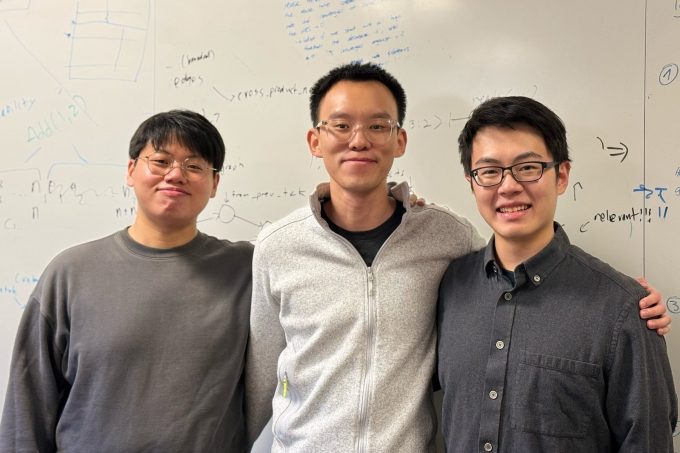
A dearth of funding for important open supply applied sciences is resulting in a swath of assist from startups, unicorns, companies, and even enterprise capital corporations.
Final yr, Bloomberg launched its FOSS (free and open supply software program) fund, committing as much as $90,000 per yr to numerous tasks. And in October, Indian monetary companies firm Zerodha launched an analogous initiative dubbed FLOSS/fund, pledging $1 million yearly to open supply tasks. The explanation? “A good portion of our success and development is owed to FOSS,” Zerodha CTO Kailash Nadh said at the time.
“It goes with out saying that this holds true for practically each expertise firm based within the final decade, whether or not it’s publicly acknowledged or not,” Nadh added.
Whereas there isn’t any scarcity of firms building businesses and raising money off the again of open supply software program, not each community-driven mission lends itself to changing into a business entity. Some open supply instruments are extra akin to Lego blocks: key parts of a software program stack, for positive, however tough to monetize immediately — notably within the early days.
And this is the reason we’ve seen a gradual rise in funding initiatives come to the fore. This contains reactive applications, resembling 2022’s Big Tech-driven $30 million pledge to bolster open supply safety within the wake of the Log4Shell safety flaw that wreaked havoc on the software program provide chain. However we’re additionally seeing extra proactive efforts, pushed from all corners of trade.
Silicon Valley VC Sequoia Capital launched an open supply fellowship in 2023 to support project maintainers with equity-free capital to cowl dwelling bills for as much as 12 months. Its inaugural fellow was Colombian software program developer Sebastián Ramírez Montaño, creator of FastAPI, an open supply net framework for constructing APIs.
In February, Sequoia revealed it would start accepting applications from any developer main an open supply mission, with plans to supply funding for as much as three qualifying tasks yearly. 9 months on, and the primary two fellows from Sequoia’s expanded program have now been revealed: Chatbot Arena, a popular open source AI model benchmarking tool utilized by most of the trade’s greatest names, together with OpenAI, Meta, and Google; and vLLM, an open supply library targeted on reminiscence administration to energy quicker and cheaper LLM serving.
Jolly good fellows
Chatbot Area, which spun out of a broader analysis group known as LMSYS, is the handiwork of doctorate college students Wei-Lin Chiang and Anastasios Angelopoulos from Berkeley’s Sky Computing Lab. With north of 1 million month-to-month customers, Chatbot Area is all about serving to LLM builders validate claims round their fashions’ efficiency, whereas anybody can check these fashions and vote for his or her preferences. Corporations resembling OpenAI usually share variations of their fashions with the Chatbot Area workforce forward of the fashions’ launch to assist fine-tune issues earlier than their formal launch.
Whereas Chatbot Area receives financing as a part of the creators’ doctorate analysis work on the Sky Computing Lab, the Sequoia fellowship award of $100,000 will assist fund additional technical improvement, together with constructing a greater interface.
“The Sequoia grant helps the event of Chatbot Area’s web site, protecting full-stack improvement and server upkeep prices,” Chiang informed TechCrunch. “This can be a reward to assist the open supply mission, with no future obligations.”
Sequoia isn’t the one VC agency to lend equity-free assist to Chatbot Area; Andreessen Horowitz launched an open supply AI grant program last August, and Chatbot Area’s umbrella outfit LMSYS was among the many second cohort of recipients.
Chiang mentioned that there are not any plans to evolve the mission right into a business entity, underscoring the necessity for different sources of financing — now, and maybe lengthy into the longer term.
“As a part of our long-term imaginative and prescient, we could set up a nonprofit group to host the leaderboard, protecting our deal with broad accessibility and neighborhood impression,” Chiang mentioned.
In tandem, Berkeley’s Sky Computing Lab additionally birthed vLLM in 2022, spearheaded by researchers Zhuohan Li, Woosuk Kwon, and Simon Mo, who began the mission after growing a system to distribute complicated processes throughout a number of GPUs extra effectively. vLLM leans on a brand new “consideration algorithm” dubbed PagedAttention, which helps cut back reminiscence waste and is already being utilized by builders at firms resembling AWS, Cloudflare, and Nvidia.

Just like Chatbot Area, vLLM serves as the point of interest of its creators’ PhD analysis work, and future commercialization shouldn’t be presently on the agenda.
“For the time being, we do not need a plan to transition it right into a stand-alone firm — we’re solely targeted on making the open supply mission helpful and extensively adopted,” Mo mentioned.
Along with Sequoia’s $100,000 contribution for the yr, other public sponsors embrace Andreessen Horowitz, which donated as part of its inaugural open supply AI grant program final yr, whereas the likes of AWS, Nvidia, and others have collectively helped vLLM cowl its compute sources — which aren’t insignificant.
“For vLLM, we intend to make use of the fund to cowl our steady integration testing and benchmark suite,” Mo mentioned. “These suites, working on GPUs, are costly to keep up however vital to make sure the efficiency and correctness of vLLM for manufacturing utilization.”
One clear message emerges from all this: AI and data infrastructure might be driving demand for open supply applied sciences, however this demand creates important prices for the mission maintainers. Ion Stoica, professor of the pc science division at Berkeley and a Sky Computing Lab adviser, says that the funding strain on open supply mission maintainers is “at the least an order of magnitude greater” with the arrival of LLMs.
“You’ve gotten a number of sorts of GPUs, you’ve gotten all of those different accelerators, and there’s additionally a distinction in scale,” he mentioned. “Ten years in the past, many of the funding for a brand new startup would go to including folks; at present, it’s going to infrastructure.”
Alignment
Digging somewhat deeper, and it’s clear that Sequoia’s involvement isn’t fairly as altruistic because it might sound, owing to the truth that its two new fellows intersect with startups in its present funding portfolio. By means of instance, vLLM is utilized by Replicate, which Sequoia (and Andreessen Horowitz) backed throughout its Series A and Series B rounds.
Elsewhere, Sequoia final yr co-led a $5 million seed round into an AI startup known as Factory, with the startup’s founder and CTO Eno Reyes confirming that his firm makes use of Chatbot Area to “hold shut observe” of the highest LLM choices.
“They’re a key enter to ensure we have now the very best product for our customers,” Reyes mentioned.
Equally, Sequoia’s first fellowship award final yr, FastAPI, leans closely on Pydantic, the favored knowledge validation library created by the eponymous startup in Sequoia’s portfolio.
Nonetheless, Sequoia Capital accomplice Lauren Reeder informed TechCrunch that this cross-pollination between fellows and portfolio isn’t a strict situation of its funding selections, merely a “good bonus” when issues do align. And in fact, when an open supply mission is genuinely standard, there’s each likelihood that it will likely be picked up by one among Sequoia’s portfolio firms, which is an effective means for the VC agency to listen to about worthwhile tasks.
When it comes to how the funding is dispersed, Reeder says it’s open to no matter fits the workforce in query. For FastAPI, this concerned making a direct cost to Montaño himself, which was less complicated provided that it was simply the one particular person. However the place groups are concerned, it is sensible to make use of a third-party fundraising platform such as Open Collective, which additionally comes with added transparency.
“For the 2 most up-to-date fellows, we had been supporting small teams slightly than a single particular person and Open Collective made it simpler to handle the funds,” Reeder mentioned. “Equally, we’ve performed each up-front funds as multi-install funds, relying on the wants of the mission. Open Collective is extra clear, however the charges usually are not insignificant.”
Taking a pledge
There have been quite a few different efforts to formalize open supply mission financing previously 5 years alone, together with devoted FOSS funds from Indeed and Salesforce, a tacit acknowledgment that vital parts of the tech stack are crying out for assist.
One of many greatest efforts of late, nonetheless, hails from developer tooling unicorn Sentry, which itself has been donating to open supply tasks for a few years. In 2021, Sentry adopted a more systematic program with firmer and extra clear commitments, and final month the corporate officially launched the Open Source Pledge to encourage different firms to get entangled — both by donating immediately by platforms resembling GitHub Sponsors or Thanks.dev, or not directly through foundations.
“We’ve run our program efficiently for 3 years, nevertheless it’s not sufficient by itself to unravel the open supply sustainability disaster. So this yr David [Sentry co-founder David Cramer] requested me to get different firms on board to make an even bigger impression,” Sentry’s head of open supply, Chad Whitacre, informed TechCrunch.
The foundations of engagement are thus: Commitments ought to quantity to at the least $2,000 per yr for every developer the member firm has on workers, which for Sentry itself translated to round $500,000 final yr — $3,704 for every of its 135 developer headcount. Beneficiaries by the years have included Django, Python, Rust, and Apache. This yr, Sentry has upped its own budget to $750,000, and with some two dozen further members signed as much as the Pledge on the time of writing, Whitacre is hopeful that open supply software program builders will see somewhat extra compensation sooner or later.
“The first intent with the Pledge is no-strings-attached funds to open supply maintainers,” Whitacre mentioned. “We vet firms after they be part of to make sure they’re complying with our guidelines, however there’s a good quantity of latitude inside these pointers.”
Other than company members contributing money, the Pledge has additionally attracted “ecosystem companions” to endorse the pledge, which incorporates foundations, people, and even storied VC firm Accel, which itself has invested in numerous open source startups by the years (including Sentry, each earlier than and after it transitioned away from an open supply license in 2019).
Accel accomplice Dan Levine mentioned that if one thing is “really vital,” then it ought to, in principle, be capable of maintain itself as a enterprise. The fact, although, is that if sufficient firms and builders are deriving worth from a given open supply mission, there shouldn’t be any points in getting monetary assist — at the least within the early days, earlier than the maintainers can forge a path to commercialization.
“Within the case of open supply software program, whereas it may be used free of charge, customers who discover it important are inherently motivated to make sure its sustainability,” Levine informed TechCrunch. “The open supply neighborhood, notably on the demand facet, must reassess its methods and make extra knowledgeable selections to assist vital tasks. The Pledge is a superb effort to impress the demand facet to do what’s in their very own greatest pursuits.”
Trending Merchandise










